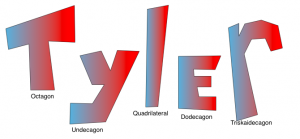 infographic |ˌinfōˈɡrafik| noun- a visual image such as a chart or diagram used to represent information or data. a good infographic is worth a thousand words.
infographic |ˌinfōˈɡrafik| noun- a visual image such as a chart or diagram used to represent information or data. a good infographic is worth a thousand words.
I went out to lunch recently with my family and noticed an eye-catching infographic at the center of each table. I wish I could post a picture of it, but that would ruin the surprise! In this math mini spark you are going to create your own infographic using the data from the restaurant.
Spark your math thinking!
1. Set up your math mini spark recording page: #23: A Yummy Infographic
2. Explore some infographics created for kids. Write about what you noticed/liked/didn’t like on your recording page.
3. Your job is to create a picture/word combo (INFOGRAPHIC) that displays all the information. The only requirement is that all the information below is somewhere on your 8 1/2 x 11 page. Use colors, crayons, pencils, Canva, or another digital tool…whatever!
Data to be included on your infographic…
- 39,598,080 mini gingerbread muffins devoured last year from this salad bar
- 1980 was when this restaurant introduced a salad bar. It was based on the suggestion of a radio salesperson.
- 10,000,000+ salad bars were ordered at this restaurant in 2020
- The original salad bar at this restaurant offered 9 ingredients. Now there are 50+ ingredients and they include select USDA-certified organics.
- There are 1,906,884 possible combinations for a 5-ingredient salad with a base of lettuce.
- If you had 1 salad a day, it would take 5,224 years before repeating a salad combination.
- No MSG since 2008 and everything on the salad bar is trans-fat free.
4. Share your minit math spark recording page and infographic with your teacher/EY coordinator.
 Have you ever been frightened by places you’ve read about in books or seen in movies or on television? What if those places were under consideration for hosting the Olympics? Can you IMAGINE???
Have you ever been frightened by places you’ve read about in books or seen in movies or on television? What if those places were under consideration for hosting the Olympics? Can you IMAGINE???






